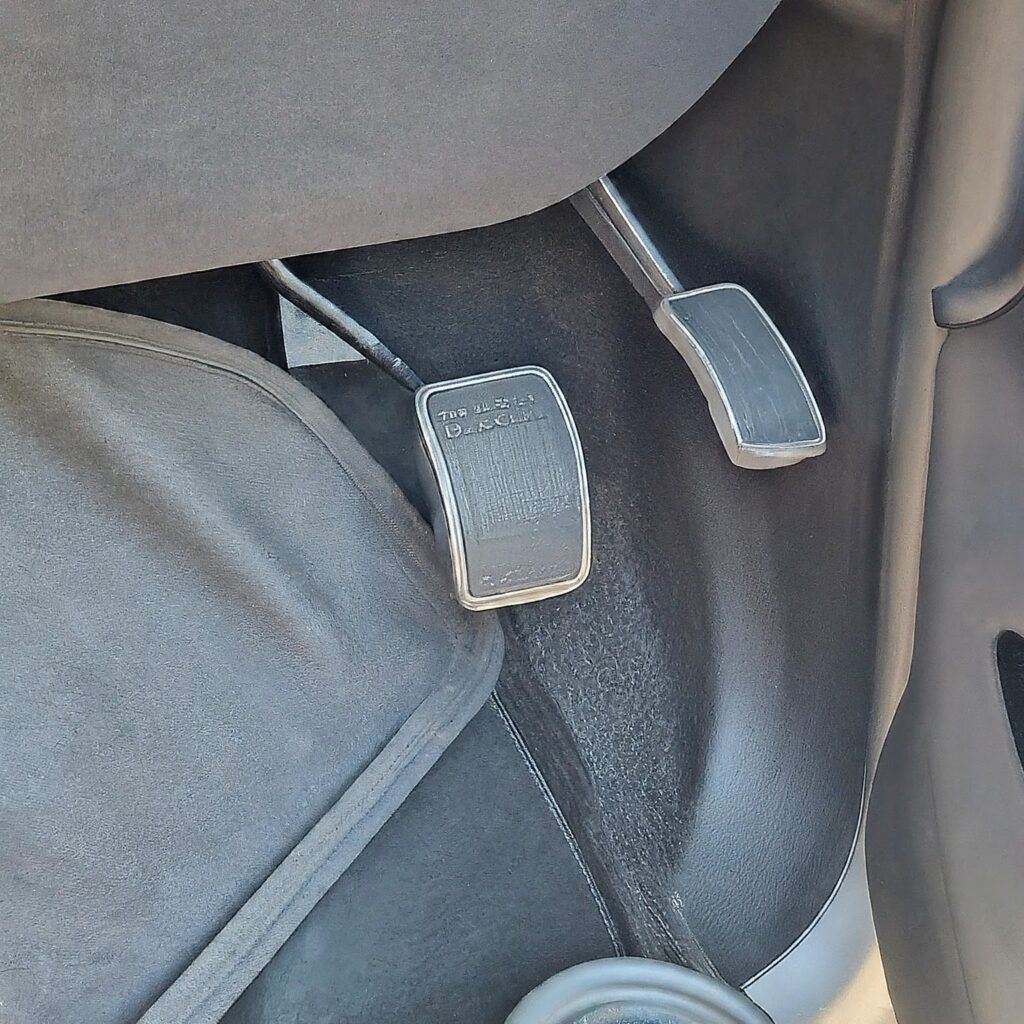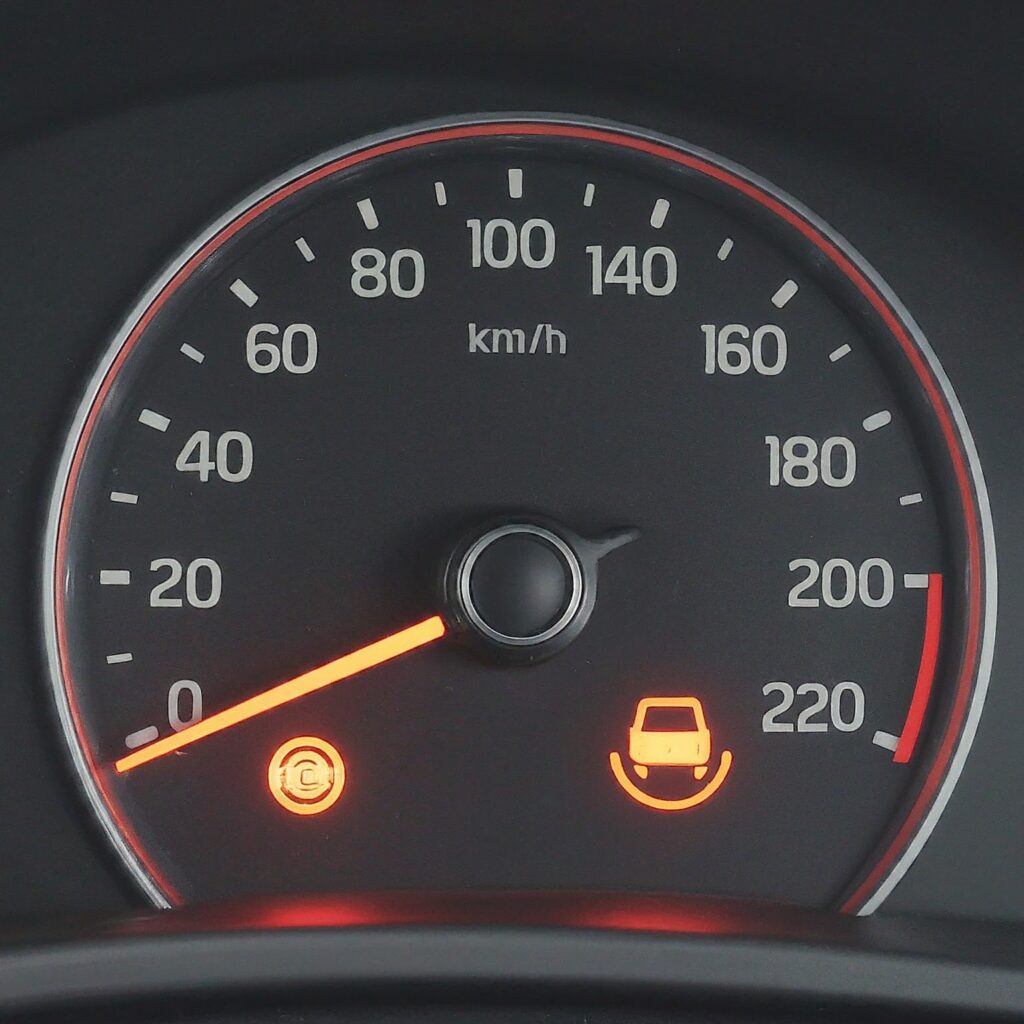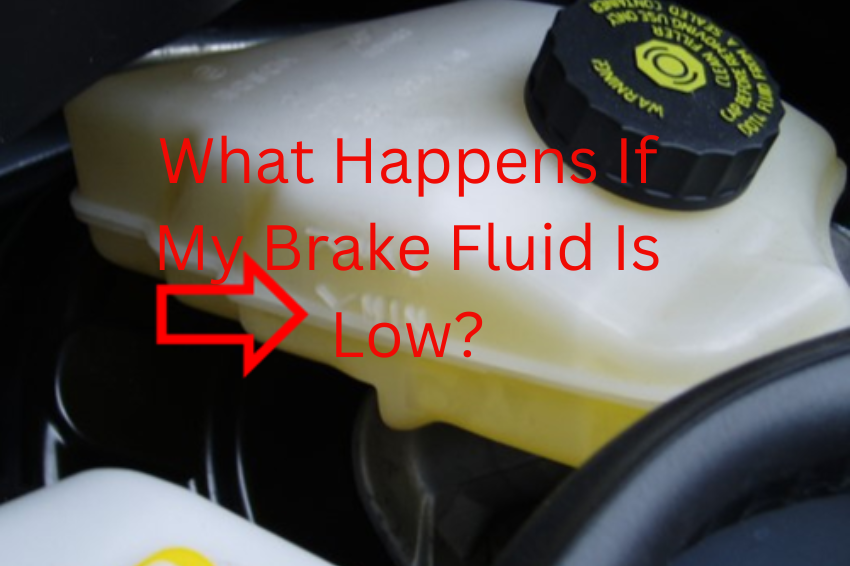“When brake fluid is low, it can lead to decreased braking performance, longer braking distances, and potential brake failure due to insufficient hydraulic pressure.”
Warning Signs Of Low Brake Fluid
Here are some key warning signs to watch out for that might indicate low brake fluid:
Soft Or Spongy Brake Pedal
A healthy brake pedal should feel firm and responsive when pressed down.
If the pedal feels mushy or travels further than usual before engaging the brakes, it could be due to low brake fluid or air trapped in the brake lines.
In a car with healthy brakes, applying moderate pressure to the pedal should bring the car to a gradual stop.
With low fluid, you may need to press much harder to achieve the same stopping power.

Increased Stopping Distance
Pay close attention to how long it takes your car to decelerate or come to a complete stop.
If you notice it takes significantly longer than usual, especially when compared to past experiences under similar driving conditions, it’s essential to get your brakes checked immediately.
Low brake fluid can lead to reduced braking power, making it harder to stop the car on time, which can be especially dangerous in emergency-stopping situations.
Brake Warning Light
Most modern vehicles are equipped with a brake warning light on the dashboard.
This light illuminates to indicate potential issues within the brake system, and low fluid levels are a common trigger.
Don’t ignore this warning sign, it’s the car’s way of alerting you to a potentially serious problem.
Ignoring a lit brake warning light and continuing to drive is risky and could lead to complete brake failure.

Unusual Brake Noises
Grinding, squeaking, or other abnormal noises while braking can be a sign of various brake problems, including low fluid.
When brake pads wear thin due to insufficient hydraulic pressure from the master cylinder, they can start grinding against the rotors, producing unpleasant noises.
A healthy braking system should operate relatively quietly.
Vibrations During Braking
A pulsating or vibrating sensation in the brake pedal when applied could indicate warped brake rotors or uneven brake pad wear, potentially caused by low brake fluid.
Warped rotors or uneven pad wear can occur when the braking system isn’t functioning correctly due to low fluid levels.
You can also watch this video for a more visual explanation of these signs:
The Dangers Of Driving With Low Brake Fluid
Driving with low brake fluid is like driving with a ticking time bomb.
It seriously hinders your car’s ability to slow down and stop safely, potentially leading to dangerous situations.
Here’s why low brake fluid is so risky:
- Reduced Braking Power: Normally, pressing the brake pedal transmits hydraulic pressure to the wheels for effective slowing down. When fluid levels are low, the system struggles to build sufficient pressure. This translates to needing to press the brake pedal much harder than usual to achieve the same stopping force. This can be especially problematic in emergencies where quick reaction times and precise control over braking are essential.
- Increased Stopping Distances: Low brake fluid can extend the distance required for your car to come to a complete stop. This is because the brakes aren’t functioning at their optimal capacity. Even a slight increase in stopping distance can have serious consequences, potentially causing a collision you could have otherwise avoided.
- Risk of Complete Brake Failure: In the worst-case scenario, extremely low brake fluid can lead to complete brake failure. This means pressing the brake pedal will have little to no effect, leaving you with no control over your vehicle’s speed. This is extremely dangerous and can result in serious accidents.
- Brake Fade: Low brake fluid can also contribute to brake fade. Brake fade occurs when the brakes overheat due to excessive friction, causing them to lose effectiveness. This can happen during prolonged downhill driving or repeated hard braking. When brake fluid is low, the system’s ability to dissipate heat diminishes, accelerating brake fade and further compromising safety.
What To Do If You Suspect Low Brake Fluid?
A healthy brake system is essential for safe driving.
If you suspect low brake fluid based on a recent mechanic visit or past discussions on warning signs, here’s what you should do to prioritize your safety:
Stop Driving
The most crucial step is to stop driving the car immediately.
Driving with compromised brakes is very dangerous and can lead to accidents.
Even if you can reach your destination, the risk is simply not worth it.
Seek Professional Help
The best course of action is to schedule a professional inspection by a qualified mechanic as soon as possible.
They can diagnose the cause of the low brake fluid, whether it’s a leak in the system, worn brake pads, or another issue.
Also, they’ll ensure your brakes are functioning correctly by refilling the fluid and bleeding the brake lines if necessary.
Remember, brake fluid systems can be complex, and attempting DIY repairs can be risky.
If immediate professional help isn’t available, and you cannot safely drive the car due to compromised brakes, consider alternative solutions like towing your car to a mechanic’s shop.
Make sure you prioritize your safety above all else, and don’t attempt to drive the car if the brakes feel unreliable.
